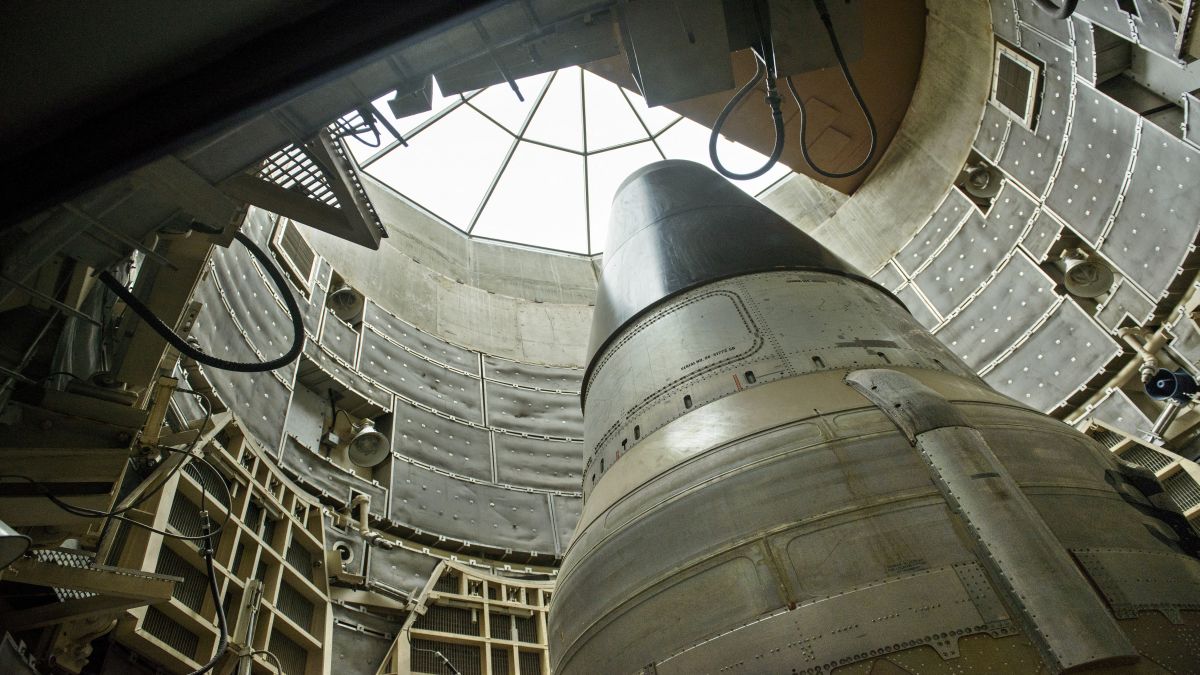As the tension in Europe and the Indo-Pacific region escalates, experts have been suggesting that the American allies should also develop nuclear capabilities as a deterrent.
Airbus board chair René Obermann said that European nations should develop a joint tactical nuclear deterrent to counter Russian aggression. While speaking at the Berlin Security Conference on Wednesday, Obermann broke away from what has been Europe’s biggest defence taboos.
In his address, Obermann said that Europe’s current posture leaves a dangerous gap below the strategic threshold, pointing to what he described as “500-plus tactical nuclear warheads” deployed by Russia along NATO’s eastern flank and in Belarus.
“What do you think would be our answer to a limited Russian tactical strike with limited effects?” he asked the audience of defence officials, military officers and industry executives. “I don’t have the answer — but I’m sure you do.”
It is pertinent to note that Tactical nuclear weapons have smaller explosive yields, typically ranging from 1 to 50 kilotons, and are supposed to be used in battlefield situations. Meanwhile, larger strategic weapons have yields above 100 kt and are designed to flatten cities.
Some insist that American allies should develop nuclear capabilities
Obermann argued that Germany, France, the United Kingdom, and “other willing European member states” should agree on a “common and staged nuclear deterrence program,” explicitly including the tactical level, an idea traditionally avoided in public debate by European leaders.
While France and the UK maintain independent nuclear arsenals, there is no shared European doctrine on how to deter or respond to a limited nuclear strike. Germany is a participant in Nato’s nuclear-sharing mission but does not possess its own weapons.
Meanwhile, in Asia, a Foreign Affairs article by Moritz S. Graefrath and Mark A. Raymond argued that “Japanese proliferation will go a long way toward achieving the United States’ main goal in East Asia, namely, the containment of China.”
Quick Reads
View AllThey argued that if Japan’s defensive benefit of being an archipelago country separated from its adversaries by the sea is combined with independent nuclear capabilities, it would effectively boost the country’s security in the face of threats.
The other side of the story: How NATO’s exercises are concerning
In an interview with Firstpost in November, Melissa Parke, the executive director of the 2017 Nobel Peace Prize winner International Campaign to Abolish Nuclear Weapons (ICAN), pointed out how the world is on the verge of a nuclear catastrophe if things don’t change for good.
The same organisation’s head of media, Alistair Burnett, said that while Nato’s Steadfast Noon and Russian exercises are annual in nature and they make it clear that they are not aimed at anybody in particular, they are still concerning. “They are a potent reminder of the fact that both of these powers can annihilate each other and the rest of us using the weapons that they’re practising using. I mean, the Nato exercise is also questionable. And it is challenged under the Nuclear Non-Proliferation Treaty,” Burnett told Firstpost.
“All of the countries taking part are state parties to the NPT, which bans the transfer of nuclear weapons from five original nuclear-weapon states under the treaty, and any other country. Now, the United States deploys its own, they’re upgraded in the past couple of years, nuclear bombs to five Nato countries, Belgium, Germany, Italy, the Netherlands and Turkey. And there is very, very strong evidence, almost certain, that the United States has now returned its nuclear weapons to the United Kingdom," he added.
Burnett pointed out that these developments are some of the reasons Russia used to justify deploying nuclear weapons to Belarus. Parke said that Ican and other similar bodies have been pleading with the world to reconsider its aggressive rhetoric and engage in dialogue and diplomacy. “When New Start [Strategic Arms Reduction Treaty] is gone in February, there will be no controls, no limits on the numbers or types of nuclear weapons. It’s it’s a dangerous time,” she said.
“The other thing I wanted to say is about this rhetoric about nuclear weapons testing, it has left a catastrophic legacy across the planet, and it’s caused devastating intergenerational health impacts of cancers, birth defects, trauma, displacement, poisoned land, air and water for generations. It’s not just historical events; this is more than 80 years of ongoing widespread catastrophic harm to humans and the environment,” Parke said.
“So any talk about repeating those crimes is indefensible. There is a clear pathway for the international community to take, which is based on international law and multilateralism, and that is the Treaty on the Prohibition of Nuclear Weapons [TPNW]. We really need nuclear-armed states and states that support the use of nuclear weapons to get on board with this treaty, instead of going in the other direction and amping up the rhetoric," she furthered.
Hence, while some are calling for nuclear proliferation amid a turbulent world, many are warning about the repercussions of such a move.
)